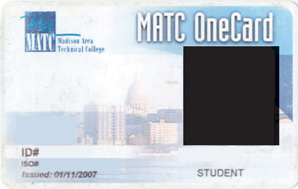Some students may be disappointed come the next primary when they try to use their student IDs to vote and are denied.
On Sept. 12, the Government Accountability Board gathered for a public meeting to discuss a new rule interpretation of the previously passed Voter ID law. In the interpretation, many factors were discussed including which schools could use their student IDs to vote and how they would go about determining enrollment status.
Among the schools to be on the list of accepted schools were all colleges and universities who gave out an associate degree or higher, were inside the Wisconsin state lines, and were also accredited by a national accreditation agency.
Looking at the above qualifications, a Madison Area Technical College student may wonder why his or her ID will be denied at the voting polls in February.
In the motion adopted by the board members, it is stated that the above qualifications must be present, but it also states technical colleges are excluded. At the board meeting, there was no definite answer as to why, only speculation.
Madison College is not alone in the exclusion. There are roughly 400,000 students in the Wisconsin Technical College System with over 50 campuses strewn across the state, and the Madison College student senate is in an uproar.
Since the beginning of the summer, the student senate has been working on this very issue. Jennifer Johnson, student senate president, said she called the Government Accountability Board’s office in July to find out what the students needed in order to update the IDs to make them fit regulations. She called twice and both times spoke to Ross Hein, the election supervisor.
The first time, she was told a certified listing of all enrolled students sent to city clerks was needed. After gathering the information, she called back to reconfirm and was then told the certified listing was for the University of Wisconsin-Madison student housing, and what Madison College actually needed was to bring in fee payment receipts, proof of residency, and the updated IDs.
Reid Magney, spokesman for the accountability board, said in a brief phone interview this update is no longer valid since the rule passed on Sept. 12 and clearly excluded technical colleges, therefore making updates to the IDs for voting purposes unavailable. He did say, however, the IDs could still be used to register to vote.
Assembly Bill 7, also known as the Voter ID law or 2011 Wisconsin Act 23, does include technical colleges throughout, however in the actual bulletin about student IDs, it simply mentions accredited colleges or universities. This is where the confusion begins, and this is where the interpretation comes from.
Speculation surrounding this important point is simply that – speculation. However, some may say, after reading the entire bill, the Legislature actually did mean to include technical colleges in their definition, but were simply trying to keep from being too redundant.
On this same note, when looking at and reading the interpretation created by the accountability board staff counsel, it is stated that the original portion of this amendment included technical colleges in the definition, but was rejected by the Assembly and was not included in the enacted bill, which is found on page 35 of the memo.
Whatever the case, one thing is clear: technical colleges were excluded and the reason for such is greatly unclear. However, since the board meeting took place, the technical college systems office staff has been in contact with the board and is currently in talks about getting technical colleges added to the appropriate list.
“Our students are fantastic and just as good as any other students at any other college or university,” said Keith Cornille, Vice President of Student Development.
The Student Senate is also taking steps in doing what they can to bring this issue to the attention of the other technical college campuses and the public eye. They are contacting the other campuses and working with the other student senates in trying to find ways they could appropriately apply public pressure on the accountability board and legislators, if only to find an answer as to why and how our college students are different from any other college student.


























